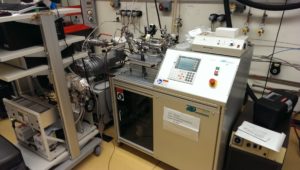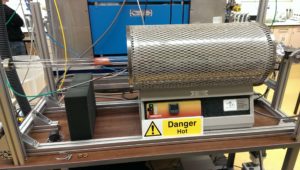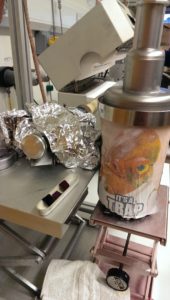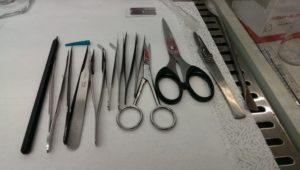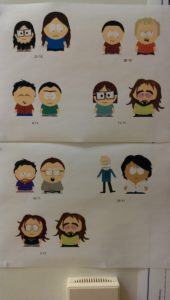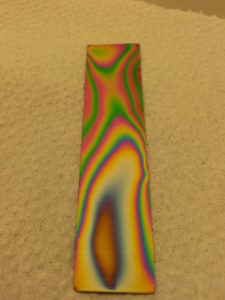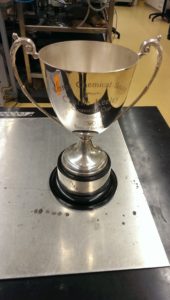Profile
Christian Wirtz
My CV
-
Education:
Secondary Schools: Liebfrauenschule Koeln, Cologne, Germany (’00-’06), Blackwater Community School, Lismore, Ireland (’06-’07); College (undergrad): Trinity College Dublin (’07-’11), University of Oregon, USA (Autumn ’10); College (postgrad): Trinity College Dublin (’11-present)
-
Qualifications:
BA (mod) in Physics and Chemistry of advanced materials
-
Work History:
I haven’t really worked in any significant “real” jobs yet…
-
Current Job:
I am currently a PhD student in Chemistry
-
Read more
Many nano-materials have very promising properties that would be great for use in electronics (like smartphones and computers), sensing (like glucose sensors for diabetics) and materials strengthening (like car hulls or tennis rackets).
Unfortunately a lot of the ways these materials are made in a lab are not feasible for industrial use as they are too slow or expensive. Think about it like building a car: You can spend a year building one in your garage, making even the screws yourself, but if you want to sell a million of them you really need to improve your process (a conveyor belt and a factory will be necessary for a start). In a similar fashion I work on devising methods for making these nano-materials on large scales without reducing their quality too much so they can actually make their way into your phones and computers rather than just stay a concept in a lab.
My approach is to take small molecules and combine them in certain ways to build useful structures that can then be implemented in everyday devices on a large scale. In contrast to some other methods this process can be expanded to making large quantities of these materials without much added cost or time.
-
My Typical Day
Make stuff, have lunch, analyse stuff, improve, repeat. In-between I fit teaching, chatting to colleagues and some level of procrastination.
-
Read more
It’s very similar to the everyday workday you probably see from your own parents.
I arrive in work sometime between 9 and 10 am, turn on my computer and check e-mails. After that I generally turn on my tools and start a process, the parameters and conditions adjusted to previous results. When a sample has been made there are various analysis techniques I can use. Depending on which one(s) I use, there is some sample preparation involved which can take a while. If the analysis turns out to be good, I pass the sample on to some colleagues who make interesting devices with it (like transistors, the basic building block of any computer chip or a simple gas sensor). If it’s bad (which is usually the case) I have to deduce if it was better or worse than previous ones and adjust my synthesis conditions to further improve my materials.
In between that I generally have lunch at some point, meetings, teaching and general chat with my colleagues.
Doesn’t sound like that much fun to you? It can be tedious at times but when you succeed at making something that nobody in the world has made before it makes all the hardship worth it!
-
What I'd do with the prize money
I’d contribute it to our chemistry outreach project which is something I’ve been quite heavily involved in for a while.
-
My Interview
-
How would you describe yourself in 3 words?
As a friend of mine put it when asked this question about me: German, German and German! (Make of that what you will!)
What did you want to be after you left school?
At the time I only knew I wanted to be a generic “scientist”. I had no real idea what that meant though.
Were you ever in trouble at school?
Not really. I never did anything out of the ordinary in terms of pranks. Not doing homework got me in trouble at times (German schools are very strict on that).
Who is your favourite singer or band?
Queen, I think. I’m open to most things though.
What's your favourite food?
Steak with pepper sauce; also a German thing called “Mett”
What is the most fun thing you've done?
Tough choice: I hiked the Himalayas (Annapurna circuit) and cycled from Cologne in Germany to Budapest in Hungary, not sure which one was better.
If you had 3 wishes for yourself what would they be? - be honest!
These may sound really strange… Firstly, being a very outdoorsy person I’d like to change the Irish weather to be more sunny at the weekends when I go hiking (it can rain more at night to not upset the farmers for all I care). Secondly I’d like to have a TARDIS (watch Dr. Who if you don’t know what that is), mostly for the instantaneous travel and language conversion features (don’t care so much about time travel) and thirdly, to always have the right pair of tweezers at hand in the lab…
Tell us a joke.
Okay, here we go… two atoms walk into a bar. Suddenly one of them starts frantically searching its pockets and says “Damn, I’ve lost an electron!” “Are you sure?” “Yeah, I’m positive.”
-
-
Work photos:
This is “my” atomic layer deposition tool, a machine that can, when operated correctly, deposit individual layers of atoms through specific chemical reactions.
This is one of our most-used furnaces that can run up to 1100 degrees Celsius and is used for making a material called Graphene.
The cold trap on one of our furnaces. It uses liquid nitrogen to filter out all possible nasty substances to prevent them from going into the atmosphere.
A set of tweezers and other implements for lab use. Chances are, the one I need still isn’t among them…
Our cleaning rota for the lab!
A rather trippy sample I made containing boron on nickel.
The Keeley Cup, a trophy given at the annual chemistry soccer tournament that our lab won for the first time in many years last September.

